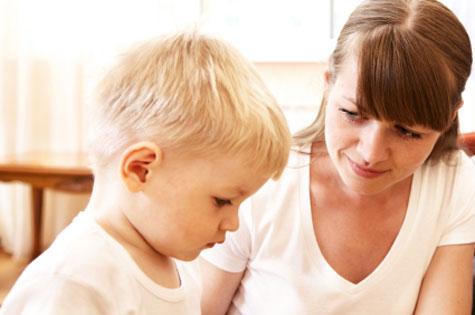The process of separation and divorce has challenges for each member of a family and worrying about children suffering comes with a big dollop of guilt for most parents. But research tells us that if separation is handled well, children don’t need to suffer negative long term consequences.
Here’s what you need to know to help your child adjust:
Look after yourself. Your children will cope as well as you are. If you aren’t coping, they will worry about you and wonder who is going to look after them. Eat well, rest when you need to (the process of separation can be emotionally exhausting), exercise as often as you can (helps get rid of frustration and anger!) and surround yourself with good friends. Allow yourself to feel the rollercoaster of feelings that come with separation and divorce and find healthy ways of expressing them: this way the hurt and stress will pass faster and the healing will start.
It’s not the divorce that can cause most problems for children, but the conflict that may have lead up to divorce. That’s why it’s really important to reduce conflict afterwards. Children do best when they have regular contact with both parents and both parents are able to co-operate in their co-parenting. When ex-partners can’t co-operate, this remains a tension for the child and this can lead to negative behavioral and emotional issues. If the co-parenting relationship is better than the marital one was, if there is less conflict and tension, children can actually thrive. This might not be possible straight away, but it’s something to aim for.
Children of different ages will react differently to separation and divorce so know what’s normal for your child’s stage. For example, preschoolers may have increased aggression or tantrums, revert back to baby behaviours such as wetting the bed or sucking their thumb or be clingy. Children can feel torn between parents and need to know that it’s OK for them to love both, they can feel responsible for the separation (especially if the conflict leading up to it was about them) and need reassurance that this is not the case. Children can also be over-emotional or withdrawn and find it hard to concentrate at school. All of these are normal responses to family separation, but if managed well, will pass.
Help your child to deal with loss. Children have a lot of losses to deal with when families separate: the loss of control or choice about things which affect them, the loss of time spent with a parent, the loss of a support system if they have to move, the loss of stability. It’s important to anticipate what the losses are for your child and help them to express these and the emotions that go with them. It’s through expression and finding comfort that children can healthily grieve their losses and be ready to move on from them. Knowing how to grieve well is an important life skill we can pass on to our children. And this is often the most positive thing that can come from a family separation: it is a time when both parents can focus on their children and help them to cope with life’s challenges. As a counselor, I know that doing this can go a long way to building a resilient adult.
Learn about relationships. Most relationships don’t fail because there is something wrong with the people that were in them. Most relationships fail because we aren’t prepared with a roadmap of how relationships work and how to work with them. For example, all long-term relationships go through different stages, and each stage requires different relationship skills. The time after separation and divorce is the perfect time to look back and work out what went wrong, to reclaim the parts of yourself that were compromised in the relationship and become whole again, to work on your relationship with yourself and then take that whole, healed self into your next relationship when you are ready. All the learning you do now can then be passed on to your children so they have the best possible chance of making their own relationships work.

Elly Taylor is a Relationship Counsellor, Pregnancy Consultant, Parent Educator and columnist for Practical Parenting magazine. She also writes for The Sydney Morning Herald and Daily Life website and runs the website www.parentsupportonline.com.
Got a question for Elly? Ask it below and we will organise for it to be answered.

















__small.png)










